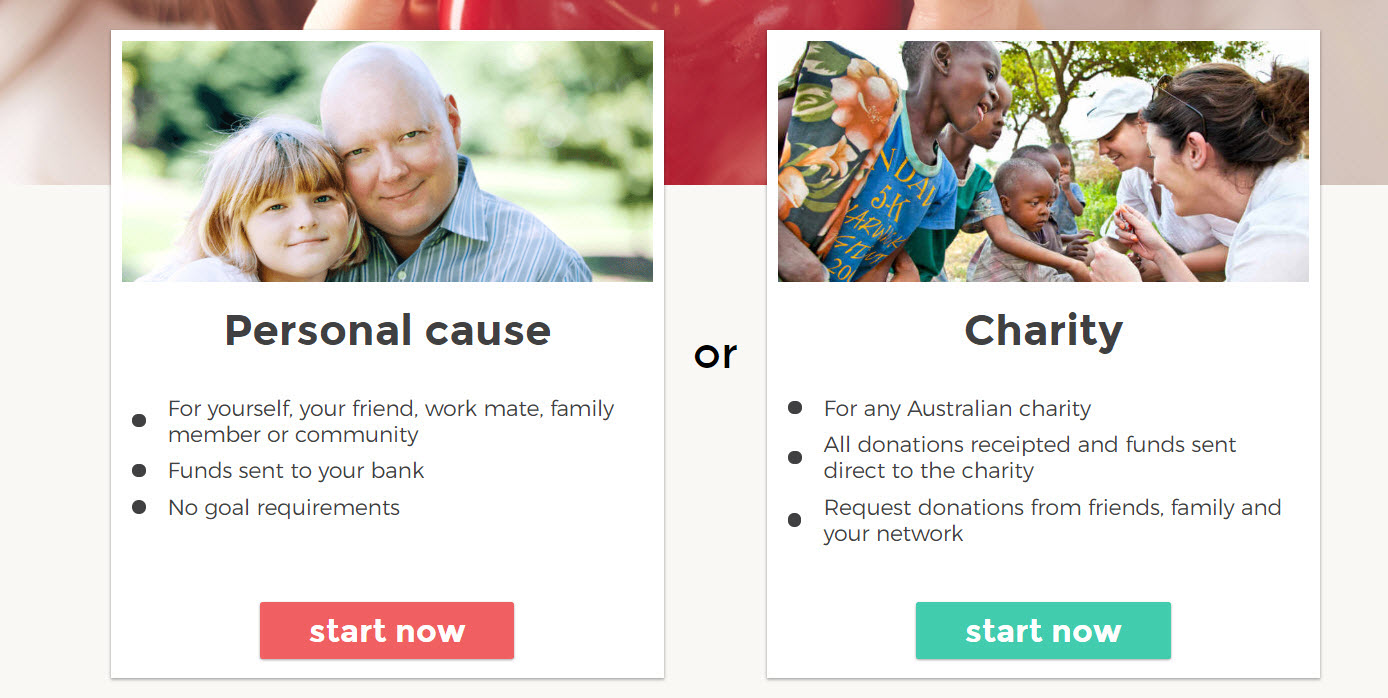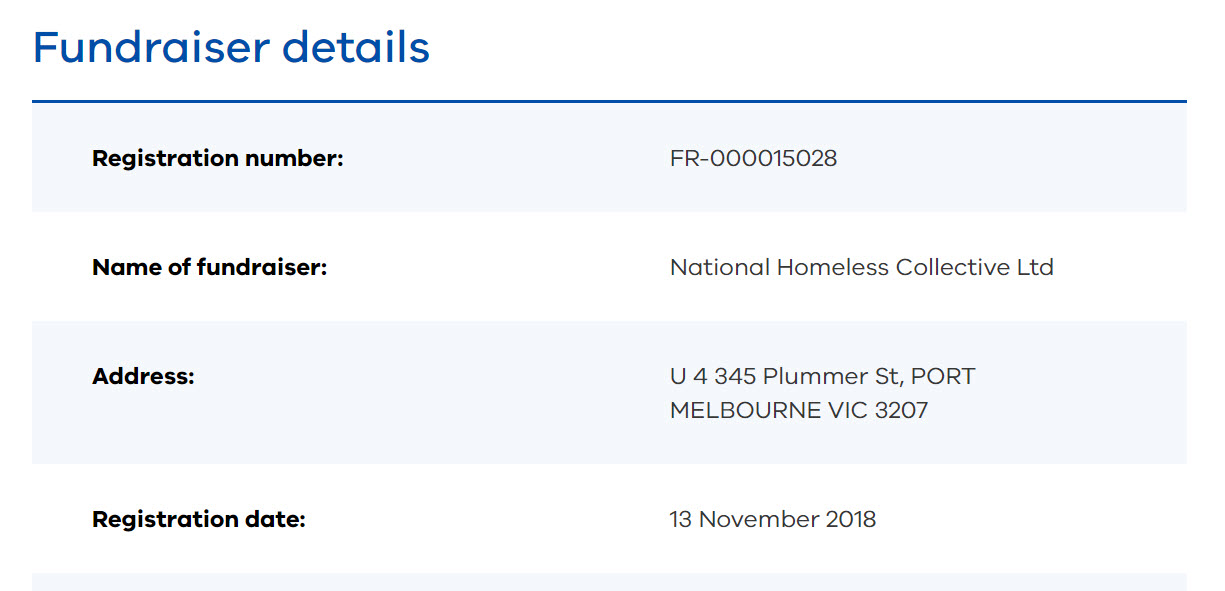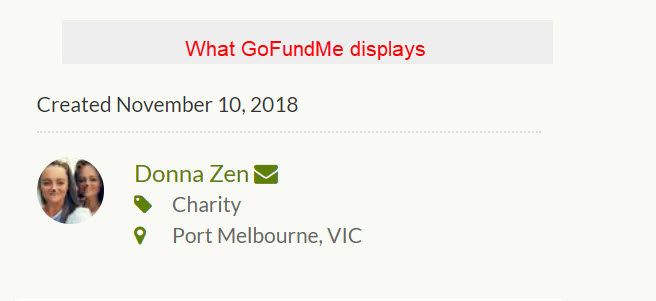An analysis of the Trolley Man campaign in light of #fixfundraising

A TROLLEY MAN CASE STUDY – There is more to it than meets the eye... but it's not what you think.
In response to recent fundraising efforts for Bourke Street’s ‘Trolley Man’ – Michael Rogers – Consumer Action Law Centre Chief Executive Officer, Gerard Brody called for increased accountability for fundraising sites such as GoFundMe. While “Leading consumer expert” Dr Gary Mortimer quoted in an article in The New Daily unhelpfully titled “Why your next GoFundMe donation could be contributing to a scam” claims there should be “a stricter verification process on fundraising sites.”
Both Mortimer and Brody are conflating issues of overseas fraud with a legitimate fundraising campaign in Australia. The real issues are more complicated and probably more boring.
#fixfundraising
Justice Connect’s Not-for-profit Law service has been working in collaboration with some of Australia's leading professional and peak bodies to improve the state of fundraising regulation in Australia for the last two years. The campaign is called #fixfundraising
The proposed three simple steps to achieve fundraising reform are:
1. Clarification and minor amendments to the Australian Consumer Law (ACL) to ensure application to fundraising activities is clear and broad
2. Repeal of fragmented and out-of-date state and territory fundraising laws, and
3. all Australian governments to work together with self-regulatory bodies and sector intermediaries to draft and consult publicly on a core mandatory code to be enforced under the ACL framework. (This code can cover some of the details like the identification of collectors for face-to-face campaigns.)
The Australian Consumer Law (ACL) is the national law for fair trading and consumer protection, which applies across Australia. The ACL applies to certain activities of charities, other not-for-profit entities and fundraisers. Whether the ACL applies to a particular fundraising activity generally depends on whether that activity occurs in ‘trade or commerce’. If it does, then you should expect the ACL to apply to that activity, no matter if you are a business, an individual, a charity or other not-for-profit.
Until all Australian Governments work together to fix our current antiquated fundraising laws by making minor amendments to the ACL, charities and other individual fundraisers, might not be subject to the ACL like “professional fundraisers” if the activity is not clearly within the trade or commerce provision, leaving a gap in regulation and remedy.
THE CHARITY IS THE FUNDRAISER
In the case of the ‘Trolley Man’ campaign, the fundraiser is actually the registered DGR charity National Homeless Collective (ABN 93613068992)
You wouldn’t know this from the GoFundMe page because they do not display it. They instead display the name of the campaign creator – Donna Zen – actually her name is Donna Stolzenberg and she is the chair of the charity.
We know that the charity is the fundraiser because they hold a fundraising license with Consumer Affairs Victoria (CAV) # 15028.

Following the spotlight on Mr Rogers and the subsequent disclosure of his criminal, past Gerard Brody from Consumer Law Action said
“….. professional fundraisers are subject to consumer laws and shouldn't mislead, pressure or trick donors;
The Consumer law he is referring, to the ACL, unfortunately, may not apply in the Trolley Man case as
- Online fundraising platforms are not “professional fundraisers” and
- Charity fundraising may not be covered unless it is clearly in “trade or commerce”.
However, we wholeheartedly agree that no fundraiser should mislead, pressure, trick etc. The #fixfundraising campaign wants fundraisers to be more clearly covered by the ACL – to ensure that some provisions (eg, coercion and harassment that currently only apply if the fundraising occurs in conjunction with the supply of goods or services) are broadened to cover fundraising activities.
Remember the Belle Gibson case? The only reason the ACL was successfully employed in that instance was because Ms Gibson promoted her book for financial gains (trade or commerce). Note the charity was NOT the fundraiser. Gibson was.
https://probonoaustralia.com.au/news/2017/03/court-rules-belle-gibson-charity-deception/
“The Federal Court’s finding shows that the nationwide ACL is well up to the task when it comes to prosecuting fundraising misbehaviour in the not-for-profit sector, and that the Victorian Commissioner for Consumer Affairs was right to use it in Belle Gibson’s case rather than the state-based Fundraising Act.
“…the national consumer law arms the regulator and courts with other enforcement tools where fines are impractical. This is important when a fundraiser or fraudulent charity has no money, as is the case with Belle Gibson.” Said Sue Woodward from Justice Connect
So until we #fixfundraising – what levers do the authorities have in the case of misleading and deceptive behavior or fraud?
The Australian Charities and Not for Profit Commission (ACNC)
The ACNC has the power to investigate and will act on concerns where:
- there is a serious risk to public trust and confidence in the sector, AND
- they relate to a charity's compliance with requirements of the ACNC Act.
All registered charities must comply and continue to comply with the ACNC Governance standards – if the charity is not complying with fundraising laws (including obligations under the ACL) and/or not ensuring funds are properly used for its charitable purposes then this can bring the ACNC into play.
One of the core requirements is that the charity must adhere to its objects within its governing document. The objects for the charity National Homeless Collective ABN 93613068992 can be found on the ACNC website:
The company is established as a charity whose object is to pursue the advancement of social and or public welfare by relieving the impact of poverty upon homeless or disadvantaged members of the community (the charitable purpose) by:
providing sanitary and personal hygiene products for women and transgender men;
providing blankets, sleeping bags and other essential items of clothing to people who cannot afford to buy these themselves;
and raising public awareness about homelessness and disadvantaged members of the community to encourage public assistance and support.
So is the charity adhering to its objects in this case?
It is a Public Benevolent Institution (PBI) and is set up to relieve needs requiring benevolent relief, it relieves the needs through providing goods and/or services which are directed to people who are in need, its predominant (main) purpose is providing benevolent relief.
So yes it is. This charity is allowed to give money to an individual because it is a PBI.
WHAT IS ALL THE FUSS ABOUT?
- The charity is registered with the ACNC
- The charity has a fundraising license with Consumer Affairs Victoria
- The charity is a PBI and is allowed to disburse to individuals
- The charity did not mislead – they disclosed that Michael had previously been in jail and was homeless (they did not know/disclose that he was on bail or wanted).
So let’s say I feel misled because I donated and I don’t want to give my hard–earned to a person on bail…. simply ask for a refund from the platform – they should process it within 24 hours.
WHAT ARE THE ISSUES USING AN UNREGISTERED OVERSEAS PLATFORM?
Whilst we do not see any fraud, misleading or deceptive behavior, our main concerns here are:
- The charity does not have a contract with GoFundMe
- GoFundMe does not distinguish between charities and individuals in its display or its processing including banking. This is how mycause shows a charity as fundraiser and beneficiary
- The platform is not licensed (mycause is licensed with CAV FR-000014833)
- The platform did not issue tax receipts.
Note that all Australian third-party platforms that specialise in charity fundraising have contracts with the charities that are displayed on their platform. This gives the platform the authority to display the logo, receipt, and accept funds via their gateway. This important contractual agreement protects the charity, the platform and the consumer (donor and campaign creator). For example, should a donor request a refund one is granted.
AN INDIVIDUAL IS THE FUNDRAISER
What has actually happened in the Michael Rogers campaign on GoFundMe, is that the charity is fundraising as a charity under the license issued by Consumer Affairs Victoria (CAV), BUT the GoFundMe platform is displaying the fundraiser as the individual Donna Salzenberg.
So, who is the fundraiser?

The fundraiser - Under the current regulatory environment, Donna would have to apply for a license in some States and not in others. Most States do not have a provision for personal cause fundraisers. One State, Queensland is using their charity licensing and trying to fit that square peg into a round hole. Fundraisers are unable to comply as they are not charities… Fundraisers do not even know or understand the provision and the authority is in no position to chase up thousands of fundraisers. In Victoria the application process is quite straightforward. The State is a special case and the license (displayed above) is for the State of Victoria only. Other States simply do not have any regulatory regime.
Mycause has hundreds of personal cause fundraisers raising money for their causes every day across State borders as do our competitors. It’s impossible for every personal cause fundraiser to apply in every State for a fundraising license so this process is not a solution.
If there is a problem such as misleading conduct, what is the solution? Can an individual ever be covered under the trade and commerce provision? If not, that leaves the Crimes Act and fraud.
Right now CAV would have to invoke their State based Fundraising Act. Other States would not have this lever. Fraud would be reported to the police as a crime.
The donor – the donor needs to be “buyer beware”. We recommend that donors do not donate to causes they do not trust. Here’s a secret for free…people do not come to platforms like mycause and GoFundMe and randomly donate. People donate to people they know and trust, in general – their friends, family and colleagues. When a campaign goes “viral” or public” the platform should carefully vet the beneficiaries.
The platform – Whilst we don't know what our competitors do to combat fraud, mycause is stringent in this area. One assumes others have some process in place. Fraud like the Bobbitt case in the US, which was breathlessly reported here, and linked to the non-fraudulent Trolley Man campaign, shows a lack of vetting by GoFundMe. It also shows that you should be aware of who the actual beneficiary is. The platform should clearly define and display the fundraiser, the beneficiary along with the bank account name of the receiver. However, in that US case, all conspirators were charged with theft by deception and conspiracy to commit theft by deception. The law has worked in the US as it should, and it would similarly work here.
mycause has a stringent vetting process and we are proud to provide a platform for our campaign creators to raise money for public campaigns such as the 2017 Bourke Street massacre, the Dreamworld disaster, for Mat raise money to give 3D printed hands to amputee kids, we’ve helped Lilli and her family stranded in Thailand and Oli fulfil his dream to go to the Paralympics and many other campaigns created by friends, family and workmates.
A campaign for Michael Rogers by Donna Zen would not be allowed on mycause. A campaign by Homeless Collective would be allowed. mycause will never allow a person to take money for a charity. You cannot raise money for "homeless people", you must fundraise for a defined person who is clearly displayed or a registered Australian charity, where the funds are disbursed by us to the charity.
Platforms are businesses and as such are subject to corporate regulation, the directors have responsibilities. The Australian platforms are currently registered in their State of origin as commercial traders. mycause is registered in Victoria.
GoFundMe is not currently registered in Australia as they are located in the US. Fundraising is now being promoted on Facebook and they are not registered either. However, the registration of platforms is redundant as it will not assist in fundraiser compliance. Certainly, if registration is only complied with for Australian based platforms then it is even more pointless.
Registration does not and should not imply that the platform takes responsibility for the fundraisers. Platforms are not fundraising, they are hosting the campaigns created by organisations, charities and individuals for beneficiaries including charities and individuals, and NFPs.
The line between who is the fundraiser and who is the beneficiary is becoming blurred as evidenced above
Bicycle registration does not keep bike riders safe. Good cyclist behavior, clear road rules and enforcement of those rules does. The same for fundraising. It's not about redundant registration, it's about a clear set of rules that are followed and enforced.
It is up to platforms to be transparent about who the fundraiser and beneficiary is, it’s up to fundraisers to act within the law and donors to be aware. There is more to this campaign than meets the eye, but it's not fraud or a scam. Let’s clarify which set of rules applies, which law that actually is and #fixfundraising for all fundraisers and all beneficiaries.